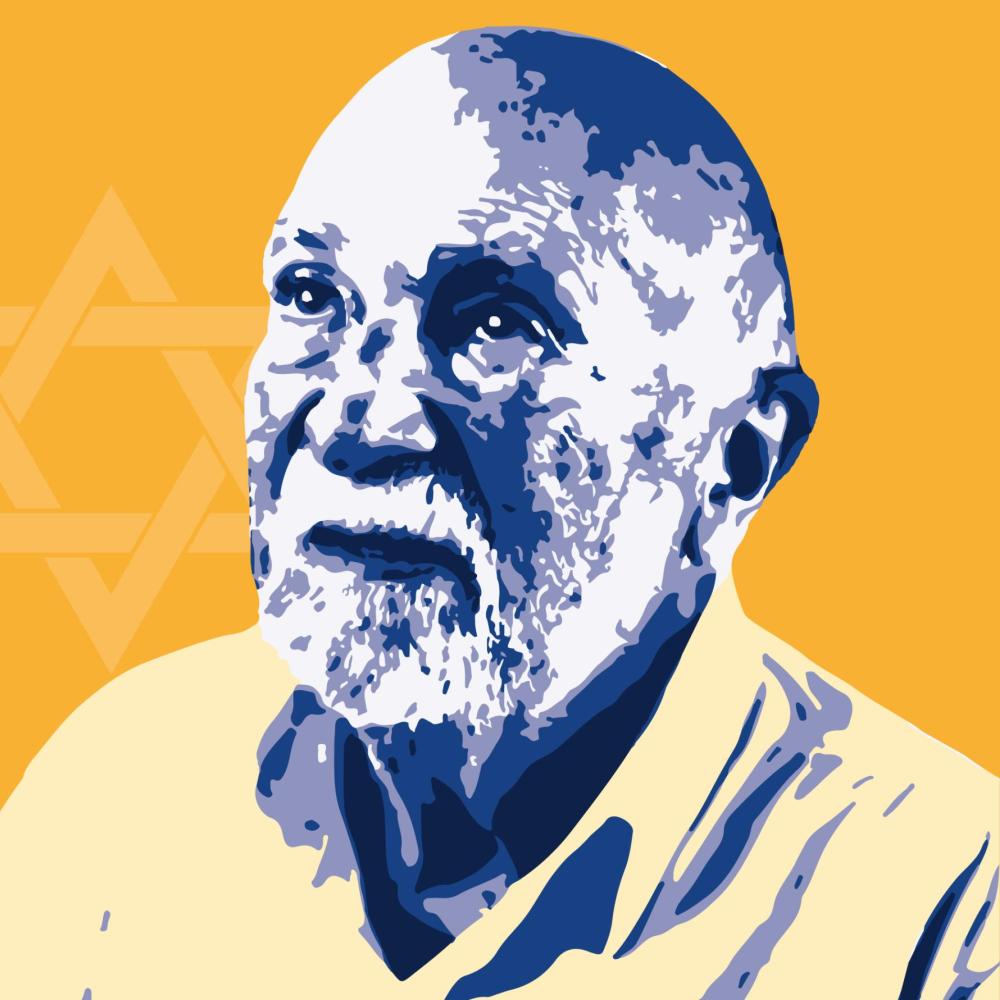

Simon Gronowski (°12 oktober 1931)
Profession: lawyer, jazz pianist, author
Nationality: Belgian
Why an honorary doctorate?
22 September 2020. Simon Gronowski receives an honorary doctorate from the VUB together with Koenraad Tinel, his friend, brother, and companion.
Forgiveness and friendship
Gronowski's exceptional friendship with Koenraad Tinel sprang from a background that could not have been further apart. Nazi scion versus Jew. Jew versus Nazi scion. They are connected by a past, by guilt, each on his side of the line. With their joint book, they give hope for hope.
Their story is one of reconciliation, of forgiveness stronger than hate. Letting go: a way of life. Both inspire and set an example for generations to come. These powerful values, which have survived in spite of all the storms, nestle securely beneath the wings of those of VUB: freedom, equality, and solidarity. That's what life is all about.
There is no such thing as a life full of peace and quiet. The history of World War II took too indelible a place in Simon Gronowski's life for that. But how enchanting is his story, which exchanged horror and despicable human behaviour for forgiveness, camaraderie, and eternal connection. Life is beautiful, in all its repugnant frightfulness. Forgetting is impossible, that is always the struggle. But forgiving finally makes the future beautiful.
“Life is beautiful, but is a struggle every day.”
About his career
A narrow escape from death
12 October 1931. Simon Gronowski is born in Uccle. His father is a Polish Jew who found his way to Belgium around 1920; his mother - from Lithuania - followed not much later. They build a house and their lives, there in Etterbeek. Mother runs a leather goods shop, father is a wholesaler. Simon has another sister, Ita.
It is 1942 and World War II brings turmoil and terror. The furious razzias against the Jews lead to arrests and the Gronowskis go into hiding in a small flat in Woluwe-Saint-Lambert. The ring of the doorbell that startles everyone at 9 a.m. on 17 March 1943 is the beginning of a dramatic turn in their lives. Two Gestapo members arrest the family and they end up, with many others, in the Dossin barracks in Mechelen. Numbers are distributed; Simon gets 1234, his mother 1233.
19 April 1943. Simon and his mother leave in a filthy cattle car with an entire convoy bound for Auschwitz. Nobody has any idea what that destination really means. They are told they are going to work in factories.
But on the way, resistance fighters stop the train and help some to escape. When a few prisoners manage to open the wagon door some time later, Simon's mother tells him to jump. He is afraid, terrified; but he does it. Simon waits and waits on the verge for his mother to join him, but that does not happen. It is the last time he sees her.
Until the liberation, the young Gronowski lives in hiding with Belgian families. In the meantime, he learns that his mother died in the gas chambers. So did his sister, from whom he acquired his love of jazz. His later repertoire is a tribute to her. Father Gronowski dies of grief in 1945.
In 1949, Simon Gronowski studies law, earning a doctorate. His desk in 2019 is filled with paper and diaries, pictures of lawyers and righteous people cover his walls. He often visits schools and speaks with children and teenagers. We must not forget.
Back to the Dossin barracks in '43. The brother of the well-known sculptor Koenraad Tinel is one of the guards there. And now, so many years later, the man feels deep regret and wishes to come to terms with his conscience before he breathes his last breath. He wants to see Gronowski. With some help, a first contact takes place and a reconciliation is achieved. The power of forgiveness is of unparalleled wonder.
This reconciliation leads to an incredibly beautiful and intense friendship between Simon Gronowski, child of a deportee, and Koenraad Tinel, scion of a Nazi family. Perpetrator and victim transcend history. They call each other brothers, and a book - 'Finally Liberated’ - follows, spreading a message of hope and happiness. Freeing yourself by forgiving; that is Simon Gronowski's lesson in life. Unspeakable gratitude, for those who risked their lives to save deportees, unspeakable words for those who continue to deny the horror.
He calls his mother a heroine. “On her journey to death, she pushed me to life. That was the most important thing for her, to see her son alive. That was my mother.”
What is an honorary doctorate?
VUB has awarded honorary doctorates every year since 1978 to personalities from the most diverse backgrounds who have made a remarkable contribution to their field and to society. From this solemn moment of recognition, they bear the honorary title of Doctor Honoris Causa of VUB.